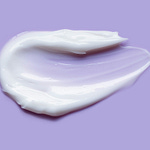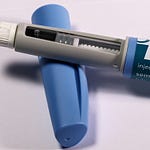
It’s Q&A time! You can ask your own question here for a chance to have it answered in an upcoming edition.
The first part of my answer to today’s question is available to everyone, and paid subscribers can read the whole thing.
Hi Christy, I’m not sure I’ve ever heard you discuss alcohol on your platform. I think we can all agree that alcohol can be incredibly problematic for people causing a multitude of deleterious health effects and can turn a person and their family’s lives upside down. But I’ve noticed a rise in influencers touting the benefits of abstaining completely from alcohol. There’s conflicting information available to us—you’ll see the “blue zones” folks showing centenarians who they claim benefit from a glass or two of red wine daily. But then the new-ish research showing there is no safe level of alcohol consumption, especially in regard to cancer risk. I’m automatically suspicious when I see content touting clearer skin or weight loss from quitting drinking. And it seems there’s a lot of crossover between diet and wellness influencers suggesting we all quit drinking. I understand this is complicated but found myself thinking, I wonder what Christy thinks about alcohol. I’ve taken breaks from alcohol but do find I really enjoy a drink when socializing with friends or family, but then go back to wondering how safe it is. Thanks for considering this topic!
FYI: my answers here are for educational and informational purposes only, aren’t a substitute for medical or mental-health advice, and don’t constitute a provider-patient relationship.
Thanks for this question! I’ve talked about alcohol a fair amount in my intuitive eating course, where I often get asked whether it’s possible to be intuitive with alcohol consumption, but I just realized I may never have discussed alcohol in a more public setting. And I definitely have thoughts!
First, I want to talk about what the science says, and put what these influencers are saying into context. Then I’ll offer some things to consider about your relationship to alcohol.
As someone with alcoholism in my extended family, I know very well the deeply damaging—and sometimes life-ending—effects of this disease. Substance-use disorders are clearly detrimental to the overall well-being of not just the user but also those close to them, and research links heavy drinking to many undesirable outcomes.
While I’ve never seen any randomized controlled trials that assign people to drink heavily, for obvious ethical reasons, in observational research heavy drinking is consistently associated with risks to the heart, liver, digestive system, immune system, and more, as well as a higher risk of cancer and mortality. Heavy drinking also carries both short- and long-term risks like accidents, injury, violence, and organ damage. For women, heavy drinking is defined as consuming 4 or more drinks on any day or 8 or more drinks per week; for men, it’s 5 or more drinks on any day or 15 or more drinks per week. For everyone, heavy drinking can also include binge drinking on 5 or more days in the past month.
And yet when it comes to lower levels of alcohol consumption, the evidence is far less clear-cut.
For years, there have been studies showing associations between low-to-moderate consumption of alcohol and a reduction in cardiovascular risk. And in “blue zones”—places in disparate parts of the world where there are supposedly a disproportionate number of people living past 100—one common theme seems to be drinking 1-2 drinks per day, as you say. (I’ve long been skeptical of the diet advice attributed to blue zones, and it’s possible that they may just be places where poor recordkeeping and widespread fraud make it look like there are lots of supercentenarians, according to a preprint study by a researcher at the University of Oxford—more on that another time.)
Yet as you mention, in the past 5-10 years there have been numerous studies showing associations between even light drinking (1 drink per day or less) and certain forms of cancer. According to a widely cited 2015 meta-analysis of 572 studies on alcohol consumption and cancer risk, “every category of alcohol consumption, from light to heavy drinking, was associated with an increased risk of [several types of] cancer,” including cancers of the oral cavity and pharynx, esophagus, and breast (in women). There was no association between light drinking and an increased risk of other cancers, though there was a link between moderate/heavy drinking and two additional types: colorectal cancer and cancer of the larynx. A 2023 systematic review and meta-analysis(SR-MA) had similar results, with a few key differences: though there was no link between light alcohol consumption and overall cancer risk, the researchers found that light drinking was associated with higher risks of four specific types of cancer: esophageal, breast, prostate, and colorectal.
The way this research has typically been interpreted is to say that any amount of alcohol consumption is unsafe, and that everyone should abstain entirely. But that reading misses some key nuances in the evidence that I think are important to consider—especially when thinking about your own relationship with alcohol.












